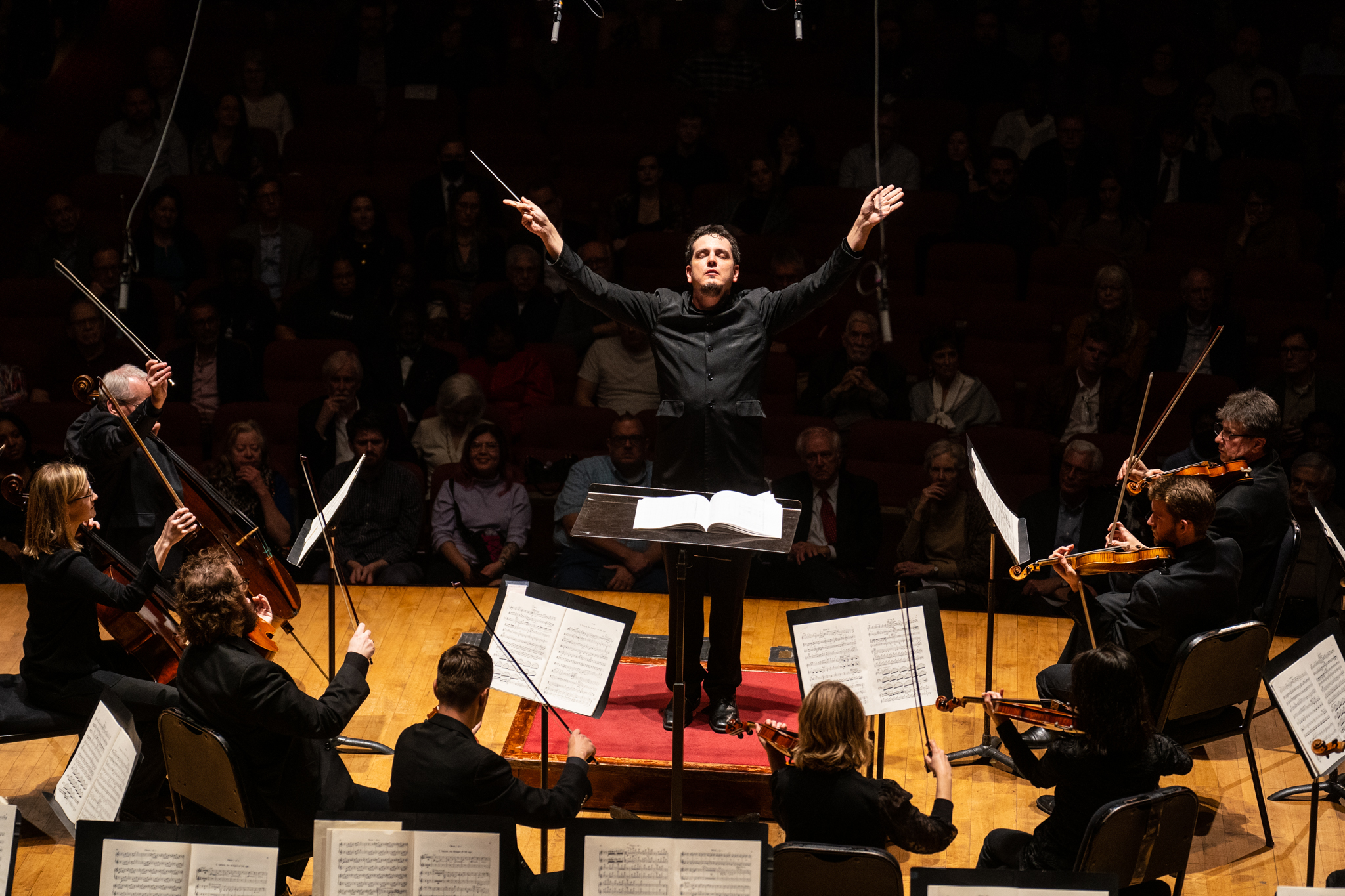
BARBER
Second Essay for Orchestra, Op. 17
BERNSTEIN
Missa Brevis
BERNSTEIN
Chichester Psalms
I. Psalm 108:2; Psalm 100
II. Psalm 23; Psalm 2: 1-4
III. Psalm 131; Psalm 133:1
INTERMISSION
RACHMANINOFF
Symphonic Dances, Op. 45
I. Non allegro - Lento - Tempo I
II. Andante con moto (Tempo di valse)
III. Lento assai - Allegro vivace
Written by Valerie Sly, 2025
Overview
This program features four pieces that were all composed in America in the 20th century. The 20th century was a period of rebuilding and reimagining of symphonic music. In the aftermath of giants like Strauss and Mahler, many were confused about how music would progress. Was there still a place for traditional Western tonality, or had the time come for a new musical language? Composers like Arnold Schoenberg and Paul Hindemith devised entirely new systems for organizing pitches, while John Cage famously challenged the very notion of music with his piece 4’33”. While the United States had been established for nearly 150 years, the 20th century saw the first significant exploration of what an American musical sound might be.
This program highlights three composers who, in the face of uncertainty about music’s direction, elected to give traditional harmony another go, and in doing so, played significant roles in the development of what we have now come to think of as uniquely American orchestral music. These composers blended the rich European traditions of their predecessors with the new sounds of Americana—colored by jazz influences, American folk songs, and eventually, the powerful impact of cinema—to create a unique American musical language, one which would eventually give rise to the iconic Hollywood sound we know today.
As you listen to this program, imagine the musical lineage that leads directly from these works to the iconic film scores you love. For instance, Rachmaninoff’s lush orchestration and emotional depth can be heard in the music of John Williams. Samuel Barber’s famous Adagio for Strings has been used in more than a dozen films from Platoon to Amelie. Leonard Bernstein was equally at home as the internationally renowned conductor of the New York Philharmonic, and one of the preeminent Musical Theatre composers of the mid-20th century.